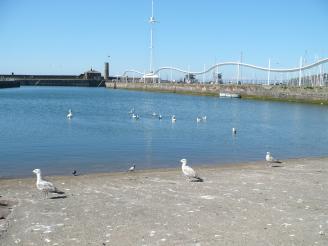Cumbria Elected Members Briefing
Date
Venue
Carlisle East Community Fire Station
Eastern Way, Carlisle, CA1 3RA
Contact
Booking
CLASP is delivering a series of training and discussion sessions exclusively for elected members in the North West. The support is fully funded by the Environment Agency and the former North West Improvement and Efficiency Partnership.
The aim of the support is to empower elected members to support and encourage local progress towards a low carbon economy and more resilient local communities. The support will particularly focus on identifying and explain new emerging issues, exploring the responsibilities of local authorities, and how members can make a difference.
Cumbria Elected Members are invited to attend a breifing on Sustainability, Climate Resilience and the Low Carbon Economy, with a particular focus on Developing Community Resilience In Cumbria.
The session will include presentations and discussion on:
Context for low carbon development and climate resilience
- UK and International policy
- Current issues
Low Carbon Economy
- Investment, jobs and market opportunities
- Up-skilling the workforce
Improving our Building Stock
- Retrofitting existing buildings
- Low carbon design for new buildings
Low Carbon Energy Technologies
- Overview of different low carbon energy technologies
- Economic and financial aspects
Climate Resilience
- Understanding the impact of climate and weather
- Adapting our infrastructure, businesses and homes
Developing Community Resilience In Cumbria
Bridging the gap between delivering our basic emergency planning duties and actually building capacity in communities so they are confident and skilled up enough to help themselves.
· Why we need climate-resilient communities
· Role of Local Authorities and Elected Members
· Assessing the local climate impacts and resilience needs
· How this fits with local Emergency Planning
· Strategies for reducing vulnerability and increasing resilience
· Planning for post-emergency support
· Incorporating resilience in new developments
· Links to green economy
· Local Nature Partnerships


